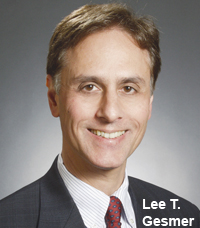 A copyright suit pending in federal court in Boston bears a striking resemblance to an IP case playing out on the West Coast, though the amounts at stake are worlds apart.
A copyright suit pending in federal court in Boston bears a striking resemblance to an IP case playing out on the West Coast, though the amounts at stake are worlds apart.
Silicon Valley giants battling in Oracle USA, Inc. v. SAP, AG may dwarf the kitchen-design software companies tangling closer to home in Real View, LLC. v. 20-20 Technologies, Inc., but the legal issues are awfully similar.
In both Oracle and Real View, a party illegally downloaded software and then used it to develop a competing product.
In each case the judge reduced the jury’s verdict ($1.3 billion in Oracle and $1.4 million in Real View) by at least 90 percent, reasoning that the aggrieved party failed to establish a basis for damages beyond the street value of the downloaded software.
Lee T. Gesmer of Gesmer & Updegrove in Boston says the verdict would have bankrupted his client, Real View.
Instead, the judge instructed 20-20 Technologies to either accept a verdict of $4,200 — the cost, at the time of the illegal download, to legally purchase the 20-20 software — or request a new trial.
Meanwhile, the federal court in California did the same thing in Oracle, except the reduced verdict was $272 million.
The reasoning behind the award reduction in each case was the same: Neither court had seen sufficient evidence to establish the value of a “hypothetical license” to do what the infringing party did.
U.S. District Court Judge Phyllis J. Hamilton in Northern California found that “the evidence Oracle presented was insufficient to establish an objective non-speculative license price.”
Hamilton explained: “Objective evidence is necessary to price a hypothetical license because the hypothetical license is simply a construct designed to help calculate actual damages suffered as a result of the infringement.”
Less than three weeks later, Judge Patti B. Saris in Real View wrote that a determination of a hypothetical license fee based on the limited facts presented “would be no more precise than pulling numbers out of a hat.”
In fact, Saris cited Oracle for the proposition that a jury’s award for a hypothetical license is “unduly speculative” without “objective evidence of benchmark transactions, such as licenses previously negotiated for comparable use of the infringed work, and benchmark licenses for comparable uses of comparable works.”
The parties in Oracle are heading back to court for a new trial, as are their diminutive doppelgangers on the East Coast.
The attorney who represented 20-20 Technologies in the first trial, Timothy C. Blank of Dechert’s Boston office, declined to comment.
But Lawrence R. Robins of Finnegan, Henderson, Farabow, Garrett & Dunner in Cambridge, who’s representing 20-20 in its second go round, says he plans to introduce evidence that can establish “a real value” for the “hypothetical license.”
 New England Biz Law Update
New England Biz Law Update
